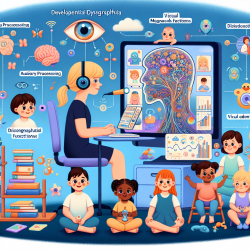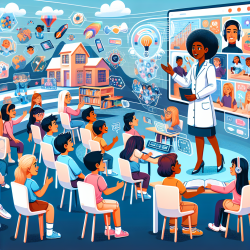In the ever-evolving field of education, continuous professional development is crucial. As a Special Education Director, staying updated with the latest trends and research is essential for providing effective leadership and ensuring legal compliance. One of the most impactful ways to enhance skills and knowledge is through conferences. However, with the shift towards online platforms, it's important to understand how virtual conferences can be leveraged for better learning and professional growth.
The Shift to Online Conferences
The recent research article titled "Online Conferences for Better Learning" by Christopher J. Lortie highlights the potential of online conferences in fostering professional development. The study emphasizes that online, virtual, and distributed conferences do not necessarily mean less opportunity for growth. Instead, they offer varied and novel options for communicating scientific processes and ideas.
The research suggests that online conferences provide a broader scope for sharing knowledge and networking, which are key components of professional development. This is particularly relevant for educators and therapists who often face challenges such as therapist staffing shortages and the need for continuous skill enhancement.
Benefits of Online Conferences
- Diversity and Inclusivity: Online platforms allow for greater diversity and inclusivity by removing geographical barriers. This enables participation from a wider range of individuals, fostering diverse perspectives and ideas.
- Flexibility: Virtual conferences offer flexibility in terms of time and location. Participants can access sessions at their convenience, making it easier to balance professional commitments with learning opportunities.
- Cost-Effective: Eliminating travel expenses makes online conferences more affordable, allowing more professionals to participate without financial strain.
- Access to Resources: Online platforms often provide access to recorded sessions and additional resources, enabling participants to revisit content and deepen their understanding.
Maximizing Your Online Conference Experience
The research outlines several strategies to maximize the benefits of online conferences:
- Plan Ahead: Review the conference agenda in advance and identify sessions that align with your interests and professional goals.
- Engage Actively: Participate in discussions, Q&A sessions, and networking opportunities to connect with peers and experts in your field.
- Utilize Technology: Familiarize yourself with the conference platform's features to ensure a smooth experience during live sessions.
- Follow Up: Connect with speakers and fellow participants post-conference to continue discussions and build professional relationships.
The Role of Open Science
The concept of open science is integral to the success of online conferences. By promoting transparency and accessibility of scientific data, open science enhances collaboration and knowledge sharing. The research highlights how open science tools can be integrated into online conferences to facilitate better learning outcomes.
A Call to Action
The transition to online conferences presents an opportunity for educators and therapists to embrace new learning modalities. By implementing the strategies outlined in the research, practitioners can enhance their skills, contribute to social good, and drive innovation in their respective fields.
If you're interested in exploring this topic further, I encourage you to read the original research paper: Online Conferences for Better Learning.










